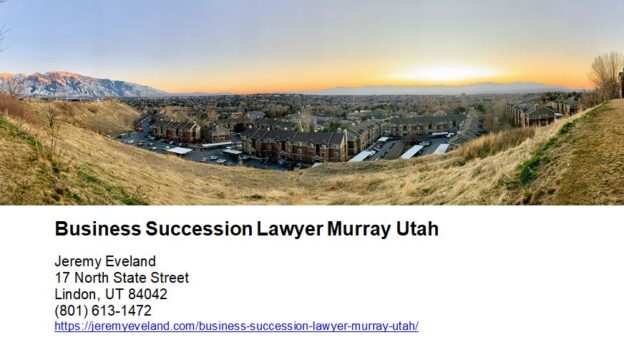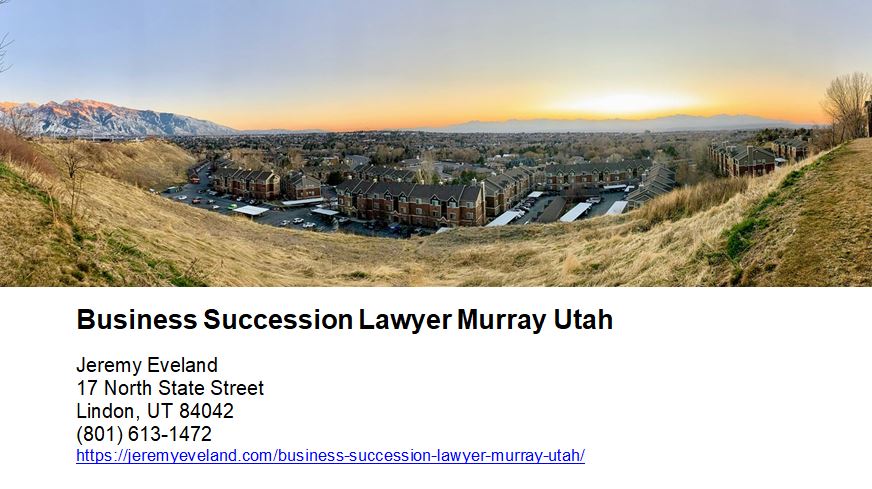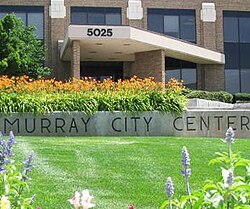Testate probate is a crucial legal process that involves validating and executing a deceased individual’s last will and testament. By carefully examining the intricate details of the will, this complex procedure ensures that the deceased’s wishes are carried out in a legally binding manner, safeguarding the rights and assets of the beneficiaries. With extensive expertise in navigating the intricacies of testate probate, Attorney [Name] provides unparalleled guidance, delivering peace of mind to individuals seeking expert legal representation during this emotionally challenging period.
What is Testate Probate
Testate probate refers to the legal process of administering the estate of a deceased person who has left a valid will. In this situation, the deceased individual, often referred to as the testator, has clearly outlined their final wishes and designated beneficiaries for their assets and possessions. Testate probate ensures that the testator’s wishes are carried out in accordance with the law and that the distribution of assets is done in a fair and orderly manner.
Definition
Testate probate is the procedure in which the court verifies the authenticity and validity of a will and oversees the distribution of the testator’s estate according to the provisions outlined in the will. This process involves various steps, which we will discuss in detail later in the article.
Importance
Testate probate is crucial in providing a legal framework for the distribution of assets and the settlement of debts after the death of an individual. By having a valid will, the testator ensures that their final wishes are respected and carried out. It provides peace of mind to the testator, knowing that their loved ones will be taken care of and their assets will be distributed according to their preferences. Testate probate also helps prevent disputes among family members, as the distribution of assets is clearly defined in the will. Additionally, the probate process ensures that all debts are settled and taxes are paid, minimizing the risk of legal complications in the future.
Differences Between Testate and Intestate Probate
While testate probate deals with the administration of an estate when there is a valid will, intestate probate comes into play when an individual passes away without a will. Understanding the key differences between these two types of probate is essential in comprehending the importance and implications of having a valid will.
Definition
Intestate probate is the legal process that occurs when a person dies without leaving a valid will. In this situation, the distribution of assets is determined by the laws of intestate succession, which vary depending on the jurisdiction.
Key Differences
The main difference between testate and intestate probate lies in the presence or absence of a valid will. In testate probate, the distribution of assets is based on the testator’s explicit instructions as stated in the will. Conversely, intestate probate relies on the laws of the state or country to determine how assets are distributed among the deceased person’s heirs. This means that in intestate probate, the court must follow a predetermined set of rules, which may not align with the preferences of the deceased individual. Therefore, having a valid will ensures that your assets are distributed according to your wishes rather than being subject to default laws.

Testate Probate Process
The testate probate process consists of several steps that must be followed to ensure the orderly administration of the testator’s estate. Let’s take a closer look at each of these steps.
Step 1: Locating the Will
The first step in the testate probate process is locating the original will. This can often be a challenge, as the will may be stored in a safe deposit box, with an attorney, or kept in the testator’s personal files. It is important to track down the original will, as a copy may not hold the same legal weight.
Step 2: Filing the Will with the Probate Court
Upon locating the original will, it must be filed with the probate court in the appropriate jurisdiction. This step initiates the probate process and ensures that the court has jurisdiction over the administration of the estate.
Step 3: Appointment of Executor/Personal Representative
Once the will is filed with the probate court, the next step is the appointment of an executor or personal representative. This individual is responsible for managing the probate process, including gathering and valuing assets, paying debts and taxes, and ultimately distributing the assets to the beneficiaries named in the will. The executor must be approved by the court and must adhere to the duties and responsibilities outlined in the will and mandated by law.
Step 4: Notice to Beneficiaries and Creditors
After the appointment of the executor, the court requires that notice be given to the beneficiaries named in the will and to any creditors who may have a claim on the estate. This notice provides an opportunity for interested parties to come forward and raise any concerns or claims.
Step 5: Inventory and Appraisal of Assets
The executor is responsible for preparing an inventory of the assets included in the estate and obtaining appraisals to determine their fair market value. This step is important in establishing the total value of the estate and ensuring that all assets are accounted for.
Step 6: Payment of Debts and Taxes
The executor must also settle any outstanding debts and taxes owed by the estate. This may involve contacting creditors, examining claims, and negotiating settlements. It is crucial to ensure that all debts and taxes are paid before distributing assets to beneficiaries.
Step 7: Distribution to Beneficiaries
Once all debts, taxes, and expenses have been paid, the executor can begin the process of distributing the remaining assets to the beneficiaries named in the will. This distribution must adhere to the instructions provided by the testator and approved by the court.
Step 8: Final Accounting and Closing
The final step in the testate probate process is the preparation of a final accounting, which provides a detailed report of all financial transactions related to the administration of the estate. This accounting is submitted to the court for approval. Once the court approves the accounting, the executor’s duties are considered complete, and the probate process comes to a close.
Role of Executor/Personal Representative
The executor, also known as the personal representative, plays a crucial role in the testate probate process. This individual is appointed by the court and is responsible for managing the estate, ensuring that the testator’s final wishes are carried out, and undertaking various administrative tasks. Let’s delve into the responsibilities, legal obligations, and compensation of an executor.
Responsibilities
The responsibilities of an executor encompass a wide range of tasks. These include locating and safeguarding the testator’s assets, paying outstanding debts and taxes, managing investments, filing necessary tax returns, and distributing assets to beneficiaries according to the provisions outlined in the will. The executor is also responsible for handling any legal disputes that may arise during the probate process.
Legal Obligations
As an executor, one must comply with various legal obligations. These obligations include adhering to the instructions provided in the will, acting solely in the best interests of the estate and beneficiaries, maintaining accurate financial records, filing required court documents, and obtaining court approval for certain actions. Executors are also required to provide regular updates to the court regarding the progress of the administration of the estate.
Compensation
Executors are entitled to receive compensation for their services. The amount of compensation can vary depending on the complexity of the estate and the jurisdiction in which the probate is taking place. Compensation may be based on a percentage of the value of the estate or on an hourly or flat fee structure. It is important to discuss compensation arrangements with the executor beforehand to avoid any misunderstandings or conflicts down the line.
Challenges in Testate Probate
While testate probate provides a structure for the orderly distribution of assets, it can also pose certain challenges. Being aware of these challenges can help you navigate the probate process more effectively and seek appropriate legal guidance when needed.
Will Contest
One of the most significant challenges in testate probate is the possibility of a will contest. A will contest occurs when a beneficiary or interested party challenges the validity of the will. This can happen for various reasons, such as claims of undue influence, lack of testamentary capacity, or the existence of a more recent will. Will contests can lead to lengthy court battles and significant delays in the probate process. Seeking the assistance of an experienced probate attorney can help mitigate the risks associated with will contests.
Executor Disputes
Another common challenge in testate probate arises when disputes arise between the executor and beneficiaries or other interested parties. These disputes can stem from disagreements over the interpretation of the will, conflicts of interest, or alleged breaches of fiduciary duty by the executor. Clear communication and prompt resolution of any disputes are essential in maintaining the integrity of the probate process and protecting the interests of all parties involved.
Beneficiary Disputes
Beneficiary disputes can also present challenges during the testate probate process. These disputes may arise due to unequal distribution of assets, discontent with the executor’s handling of the estate, or allegations of fraud or mismanagement. Resolving beneficiary disputes requires a thorough understanding of the legal rights and obligations of all parties involved. Seeking legal guidance can help navigate these disputes and find equitable solutions.
Avoiding Testate Probate
While testate probate provides a structured process for the distribution of assets, some individuals may seek to avoid probate altogether. There are several strategies that can be employed to keep assets out of the probate process. Let’s explore some of these strategies.
Estate Planning
Careful estate planning is one of the most effective ways to avoid testate probate. By creating a comprehensive estate plan, individuals can establish trusts, make gifts, and utilize other legal tools to transfer assets outside of probate. Engaging the services of an experienced estate planning attorney can help ensure that your assets are protected and distributed according to your wishes, while minimizing the need for probate.
Revocable Living Trusts
A revocable living trust is a popular estate planning tool that allows individuals to transfer their assets into the trust during their lifetime. By doing so, the assets are held by the trust and are not subject to probate upon the individual’s death. The trust provides for the seamless and private distribution of assets to beneficiaries, without the need for court involvement. This can significantly reduce the time and costs associated with probate.
Joint Ownership
Another way to avoid probate is through joint ownership of assets. By holding assets jointly with rights of survivorship, such as joint bank accounts or property ownership, the surviving joint owner automatically receives the assets upon the death of the other owner. However, it is important to weigh the benefits of joint ownership against potential risks, such as creditor claims or disputes among joint owners.
Beneficiary Designations
Designating beneficiaries on certain assets, such as retirement accounts, life insurance policies, and payable-on-death bank accounts, can also bypass probate. By naming specific beneficiaries, the assets are directly transferred to them upon the owner’s death. It is crucial to regularly review and update beneficiary designations to ensure they align with your current wishes.

Costs and Timeframe in Testate Probate
Understanding the costs and timeframe associated with testate probate is crucial for effective estate planning and managing expectations during the probate process.
Probate Costs
The costs associated with testate probate can vary depending on factors such as the complexity of the estate, the size of the assets, and the fees charged by the probate attorney and other professionals involved. Common costs may include court filing fees, appraisal fees, executor fees, attorney fees, and estate administration expenses. It is advisable to consult with a probate attorney to obtain a realistic estimate of the costs involved in your specific situation.
Timeframe for Probate Process
The duration of the testate probate process can vary significantly based on various factors, including the complexity of the estate, the jurisdiction, and any potential challenges or disputes that may arise. On average, the probate process can take six months to a year to complete. However, it is important to note that complex or contested probates can extend beyond this timeframe. Consulting with a probate attorney can help you navigate the process efficiently and minimize unnecessary delays.
Importance of Legal Representation
Given the complexity and potential challenges involved in the testate probate process, obtaining legal representation is highly recommended. A probate attorney can provide valuable guidance and expertise throughout the process, ensuring that your rights are protected and that the administration of the estate is carried out smoothly. Let’s explore the importance of legal representation in more detail.
Complexity of Probate Laws
Probate laws can be intricate and vary from jurisdiction to jurisdiction. Navigating these laws and understanding the intricacies of the probate process can be challenging for individuals without legal expertise. A probate attorney, with their knowledge of the laws and regulations, can help simplify the process and ensure compliance with all legal requirements.
Legal Expertise
Probate attorneys specialize in the field of probate law. They possess the necessary expertise to guide you through the complexities of the testate probate process, including filing required documents, representing your interests in court, and resolving any disputes that may arise. By leveraging their legal knowledge, you can navigate the process more efficiently and avoid costly mistakes.
Minimizing Conflict
The presence of a neutral third-party, such as a probate attorney, can help minimize conflicts among beneficiaries and other interested parties. By acting as a mediator, the attorney can facilitate open communication and help find mutually acceptable resolutions to disputes. This can prevent lengthy court battles and preserve family relationships during a difficult time.
Protecting Your Rights
Having legal representation ensures that your rights as a beneficiary or executor are protected throughout the probate process. An experienced probate attorney can advocate for your interests, address any concerns or disagreements, and help ensure that the administration of the estate is carried out in accordance with the law and the testator’s wishes.

Choosing the Right Probate Attorney
Choosing the right probate attorney is essential to navigate the testate probate process effectively. Here are some key factors to consider when selecting an attorney to represent you during this critical time.
Experience and Expertise
When choosing a probate attorney, it is crucial to consider their experience and expertise in the field of probate law. Look for an attorney with a proven track record of successfully handling probate cases similar to yours. An experienced attorney will have a deep understanding of the probate process, legal requirements, and potential challenges that may arise.
Client Testimonials
Reading client testimonials and reviews can provide valuable insights into the quality of service a probate attorney offers. Look for testimonials that highlight an attorney’s professionalism, communication skills, and ability to handle complex probate cases. Positive client experiences are a good indicator of the attorney’s suitability for your specific needs.
Understanding Fees
Discussing and understanding the fee structure is essential before hiring a probate attorney. Inquire about the attorney’s billing methods, whether they charge hourly fees or work on a flat fee basis. Request a breakdown of anticipated expenses and any potential additional costs that may arise. It is important to have a clear understanding of the financial implications of hiring a probate attorney.
Accessibility and Communication
Effective communication with your probate attorney is crucial throughout the probate process. Ensure that the attorney you choose is accessible and responsive to your inquiries. Clear lines of communication will enable you to stay informed regarding the progress of the probate process and address any concerns or questions that may arise.
Making the Decision to Hire a Probate Attorney
Deciding to hire a probate attorney is an important decision that can greatly impact the outcome of the testate probate process. Assessing your needs and considering the benefits of professional help can help you make an informed decision.
Assessing Your Needs
Before making a decision, assess your individual needs and circumstances. Consider the complexity of the estate, the potential for disputes or challenges, and your comfort level in managing the probate process independently. While some individuals may feel confident in handling the process themselves, others may benefit from the expertise and guidance of a probate attorney.
Taking Advantage of Professional Help
The testate probate process can be overwhelming, especially during a time of grief and emotional stress. By taking advantage of professional help, you can alleviate the burden and ensure that the administration of the estate is handled efficiently and in accordance with the law. A probate attorney can provide the necessary guidance, expertise, and support to navigate the process and protect your interests.
In conclusion, testate probate is the legal process of administering the estate of a deceased individual who has left a valid will. It ensures that the testator’s final wishes are carried out, debts are settled, and assets are distributed to beneficiaries. Understanding the differences between testate and intestate probate is crucial, as is being aware of the steps involved in the testate probate process. It is recommended to seek the assistance of a probate attorney to navigate the complexities of probate laws, minimize conflict, and protect your rights throughout the process. By making the decision to hire a probate attorney, you can take advantage of professional help and ensure the orderly administration of the estate.








